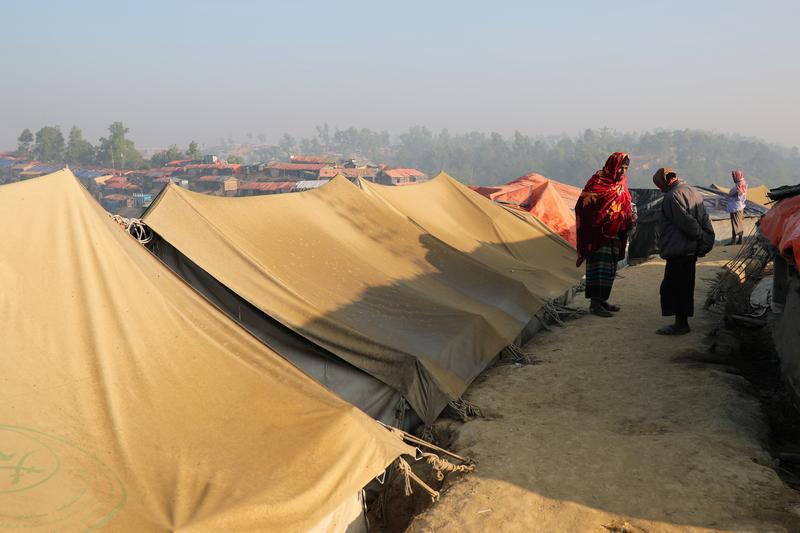A Burmese government minister will visit Rohingya refugee camps in Bangladesh on Wednesday, officials said, a rare trip that Dhaka hopes will help speed the return home of hundreds of thousands of the neighbouring nation’s Muslim minority.
Win Myat Aye, the Union minister for social welfare, relief and resettlement, will speak with some of the roughly 700,000 Rohingya Muslims the United Nations and aid groups say fled a military crackdown in their Buddhist-majority country since last August.
“So many people of his country are here and it’s their moral obligation to see their conditions,” Mohammed Abul Kalam, Bangladesh’s refugee relief and rehabilitation commissioner, told Reuters.
“His country may want to show the global leaders that they are sincere to repatriate. Bangladesh expects to resolve the problem soonest, as it is a huge burden for this country, which we cannot bear.”
The Burmese minister confirmed to Reuters last week that he was visiting Bangladesh.
Kalam will accompany Win Myat Aye on the visit to the camps in Kutupalong, where many refugees live in shacks made of bamboo and plastic sheets that are unlikely to withstand heavy rains and storms brought by the monsoon season when it starts in June.
A Bangladesh foreign ministry official said his country wanted to show the visiting minister the challenges it was facing in hosting the refugees in the coastal district of Cox’s Bazar, bordering Burma.
[related]
Win Myat Aye, the minister charged by Burmese leader Aung San Suu Kyi with leading rehabilitation efforts in the country’s Rakhine State that the Rohingya call home, is likely to meet Bangladesh’s foreign minister on Thursday, said the official, who declined to be identified, citing government policy.
Burma has said it has already verified several hundred Rohingya refugees for possible repatriation.
The Rohingya exodus followed reported killings, burnings, looting and rape in response to Rohingya militant attacks on security forces. Burma, which considers most Rohingya to be illegal immigrants from Muslim-majority Bangladesh, has denied the accusations.



